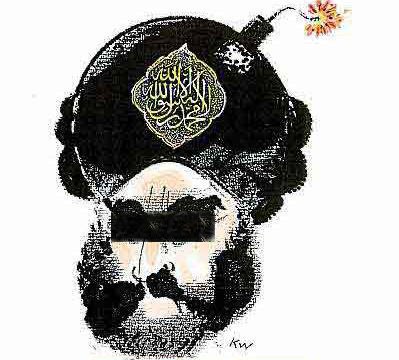 A group of Danish soldiers on the morning of the German invasion,
A group of Danish soldiers on the morning of the German invasion,9 April 1940. Two of these men were killed later that day (Caps: Wiki)
The attack took Denmark by complete surprise and even though the army had been all but demobilized and equipped with obsolete weaponry, the army never the less resisted for a few hours at the border, loosing 16 men. The Germans have never made official their casualties, but it was at least a couple of dozens.
One of the brave young soldiers was Anker Jørgensen (not in the picture) who later became Prime Minister of Denmark (and an absolute disaster at that, but that, as they say, is another story.)
Simultaneously, the airfield of Aalborg was captured by German paratroopers and Copenhagen was overrun by troops landing in the harbor. A panicky and desperate Danish government agreed to meet the capitulation terms while hearing the sounds of small-arms fire as the outnumbered Royal Guards opened up on the invaders and the droning of heavy bombers circling the capital, waiting for the orders to unleash their deadly cargo in case of any further resistance.
Denmark's status during the war was an unusual one. She wasn't annexed and neither was she fully occupied, but remained a semi-autonomous country until 1943 when the government stepped down under the pressure of an ever-growing popular resentment (and the realization that the tide of war was turning against Germany, but in '43 it was still touch an go). One of the German responses was to arrest the Danish police and sending them to Buchenwald. I mention this, because my late father was one of those unfortunates. He was miraculously saved in the last weeks of the war by Folke Bernadotte's white buses. My dad never grew tired of praising Bernadotte, certain as he was he would not have lived to see the end of the war, had he not been evacuated from the horror of the camps.
My salute on this day goes to the men who, knowing full well any fight would be futile, fought none the less.
 During the German occupation, King Christian X became a
During the German occupation, King Christian X became apowerful symbol of national sovereignty. This image was
taken on the King's birthday in 1940. Note that he is not
accompanied by a guard (Caps: Wiki)
More on Weserübung here, and the occupation of Denmark here.












1 comment:
"My salute on this day goes to the men who, knowing full well any fight would be futile, fought none the less."
And a very appropriate salute that is!
If more people were willing to fight and die for what was right, standing on principle instead of calculating whether they would prevail, the world would be a better place.
Don't misunderstand that remark -- some people decide to fight for a principle, and then do so smartly, considering their possibilities of success in different scenarios. That is very different from the people who just side with whoever is in power.
Fighting for a cause means being ready to die for a cause; it does not necessarily mean dying for it. Generally, the best way is to make the other guy (in this case, the Nazis; today, Islamic Khawarij terrorists) die for his cause!
Good post!
Post a Comment